L.A. to clear homeless camp in Little Tokyo, sparking mixed reaction
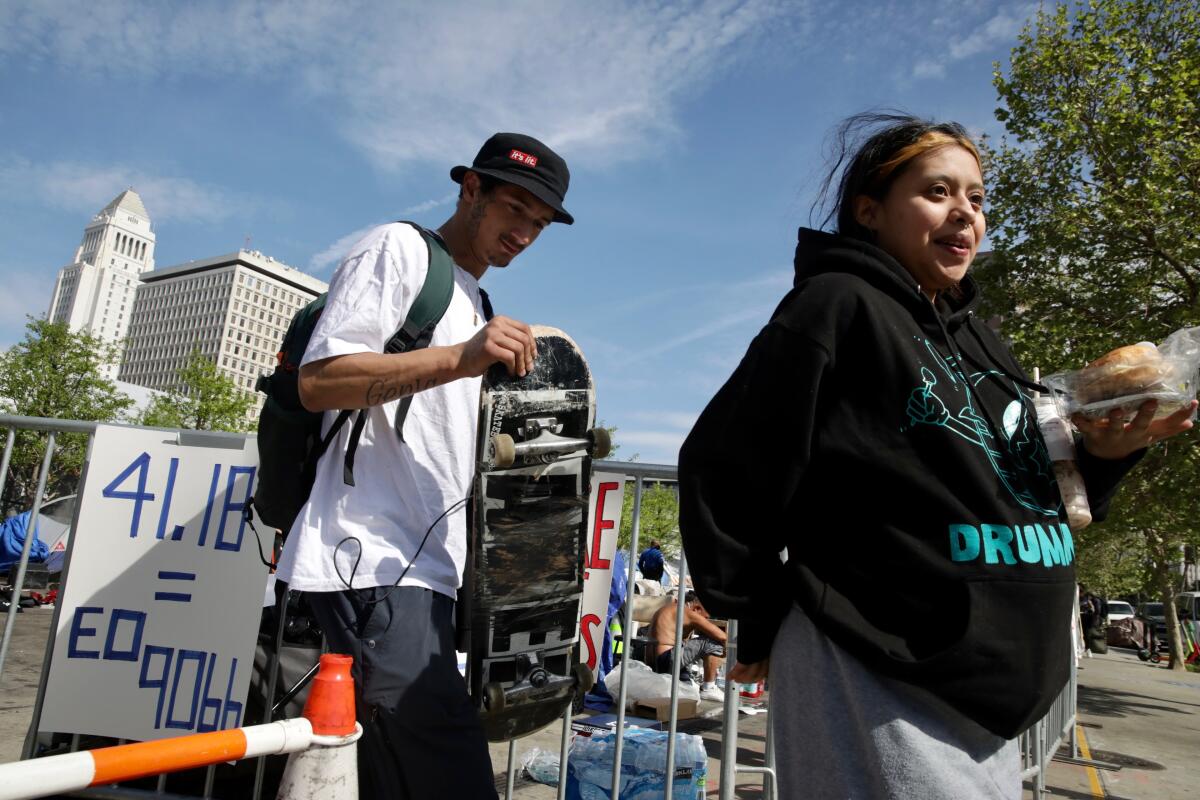
- Share via
Camped out in a Little Tokyo plaza, Thomas Miller felt pulled in two directions as city and county officials offered him a free hotel room at the L.A. Grand, and homeless activists told him it would not lead to long-term housing.
In the city’s halting, piecemeal approach to clearing encampments, tensions tend to come from every angle. But Thursday morning, the homeless people at the center of the debate stood quietly by as activists decried the agencies’ promises as empty.

“It was like my mom and dad getting a divorce all over again,” Miller said. “I was torn. I don’t want to feel like I’m choosing a side or anything.”
Toriumi Plaza had the the potential to become the latest flashpoint in the crisis as sanitation crews prepared to clear the remnants of the homeless encampment — one of the largest since they expelled some 200 people from the shores along Echo Park Lake last year. That earlier effort turned violent and led to the arrest of about 182 people, including several members of the press.
But outreach workers had managed to get 61 people from the plaza into some kind of shelter by Thursday afternoon, and the remaining two dozen people, including Miller, were mostly subdued as arguments heated up around them. The cleanup crews were expected to move in on the last holdouts at 10 p.m.
J-Town Action and Solidarity, a grassroots organization, staged a demonstration at the site and duct taped homemade signs that read “services not sweeps” on a metal barrier that city workers had placed around encampment. Hanging over the stairwell of an underground parking garage a large black banner declared “No sweep, no fence, never again is now.”
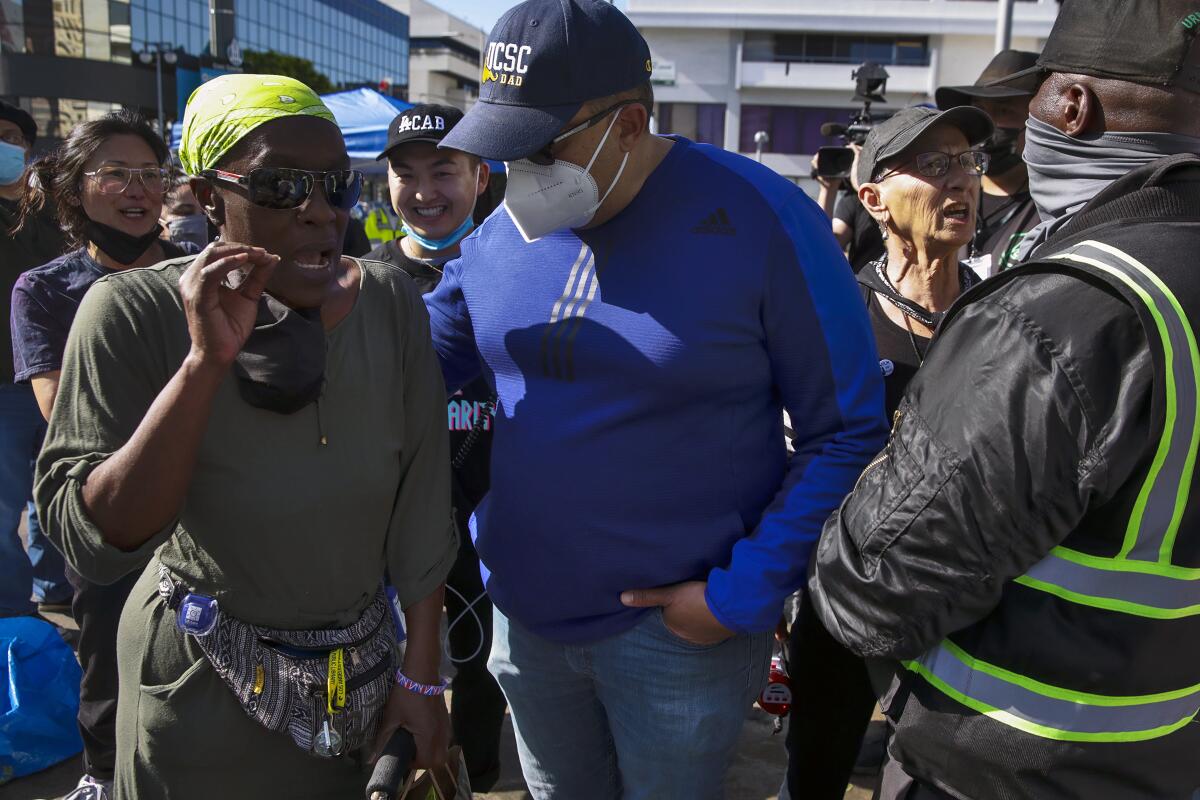
For the past two weeks, the group had taken to social media to call on supporters to help defend the encampment. They called on City Councilman Kevin De León, whose district includes downtown and who led the efforts to get the homeless people into housing, to cancel the closure.
Steven Chun, organizer for J-Town Action and Solidarity, said they spent the past 60 weeks developing a relationship with residents at the encampment. They provide hot meals, personal protective equipment and clothes to the people at the site every Saturday. He said they also gave people their cellphone numbers for emergencies.
The protest, Chun said, was in part to protect the rights of the residents at the encampment who don’t necessarily want hotel rooms, shelters or tiny homes because of how rigidly controlled they are.
“They feel like prisoners and caged animals,” Chun said.
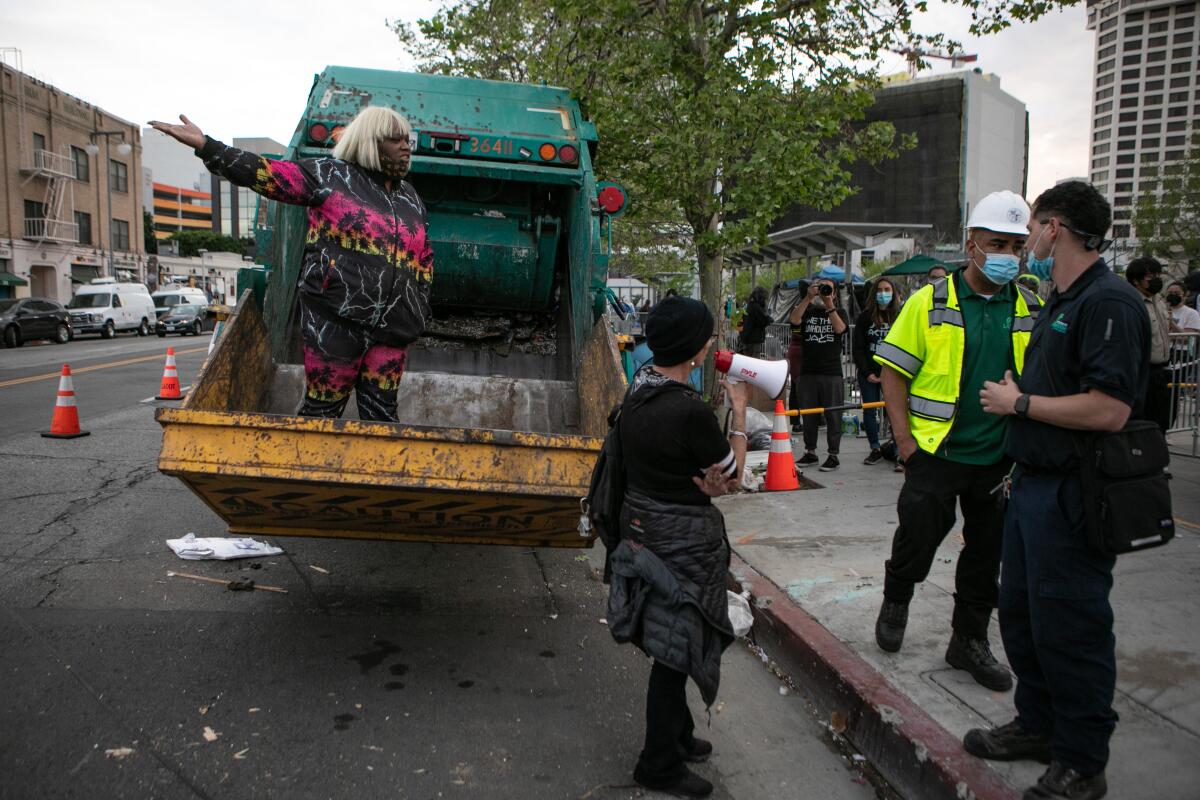
He aimed to hold De León’s office accountable for providing what he called misinformation, saying that a housing referral number given out to those at the encampment instead directs them to a robocall, asking people to simply leave their contact information. City officials said the joint-powers Los Angeles Homeless Services Authority managed the phone system, not them.
“For two days we have not received a call back,” Chun said. “It’s just an illusion to show they’re doing something.”
Chun said demonstrators planned to stay as long as they needed at the plaza to help anyone who remained at the campsite.
“At the end of the day, we’re here for them,” he said
City officials said they notified residents that they would close the area for repairs a month ago. Outreach workers with the Los Angeles County Homeless Authority Services began visiting the location and worked on moving people into some form of housing.
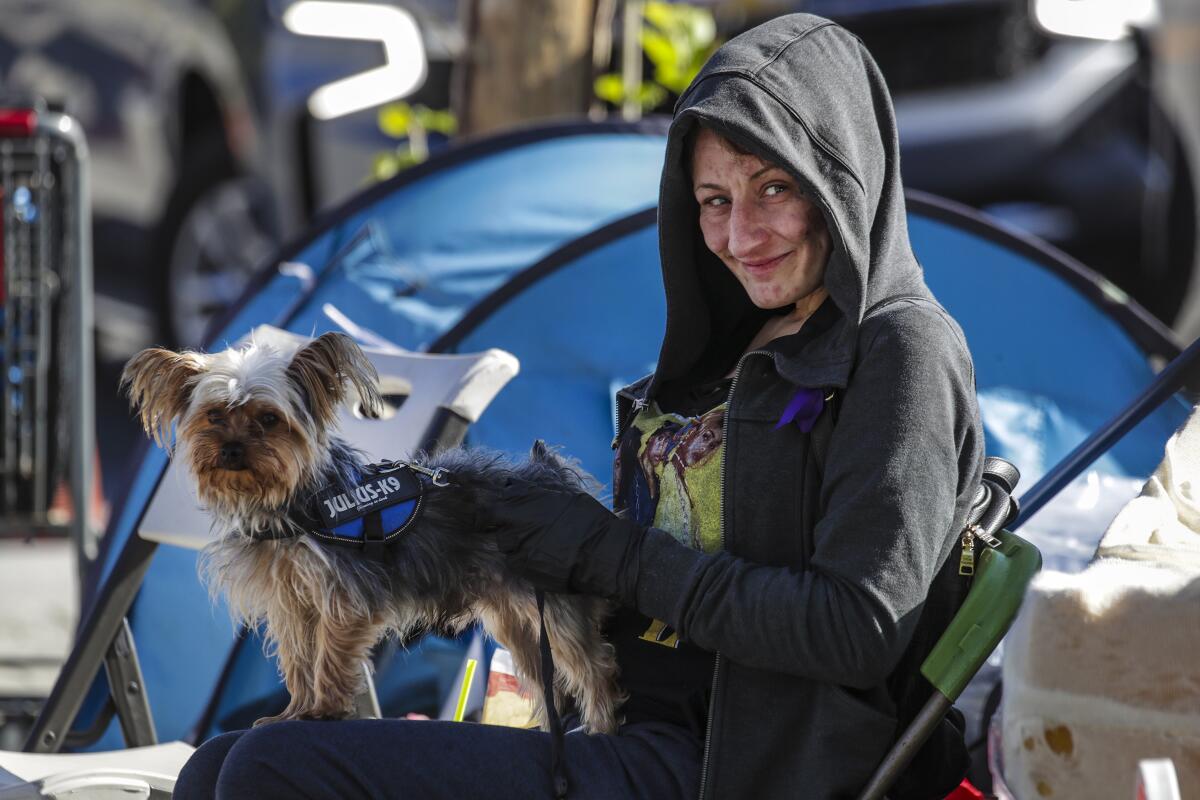
Pete Brown, communications director for De León, said outreach efforts began Feb. 16.
In a phone interview, De León praised outreach workers for getting many of the residents of the encampment into housing.
“I think today was very successful because the overall goal was to secure housing for our un-housed neighbors,” he said. “And overwhelmingly, our unhoused neighbors at the plaza have accepted housing, and that’s a good thing for our community.”
He accused his critics of making it more difficult to get people into housing, putting them at risk of other dangers.
“When you’re using language like ‘sweeps are murder,’ that inflames the situation even more so for those who are suffering from severe mental illness,” he said.
Brown said the closure of the plaza is also in part to address public safety concerns from residents and businesses who have long complained about the encampment.
He said over the past two years, the Los Angeles police and fire departments have received more than 130 calls for services related to overdoses, assault and fires.
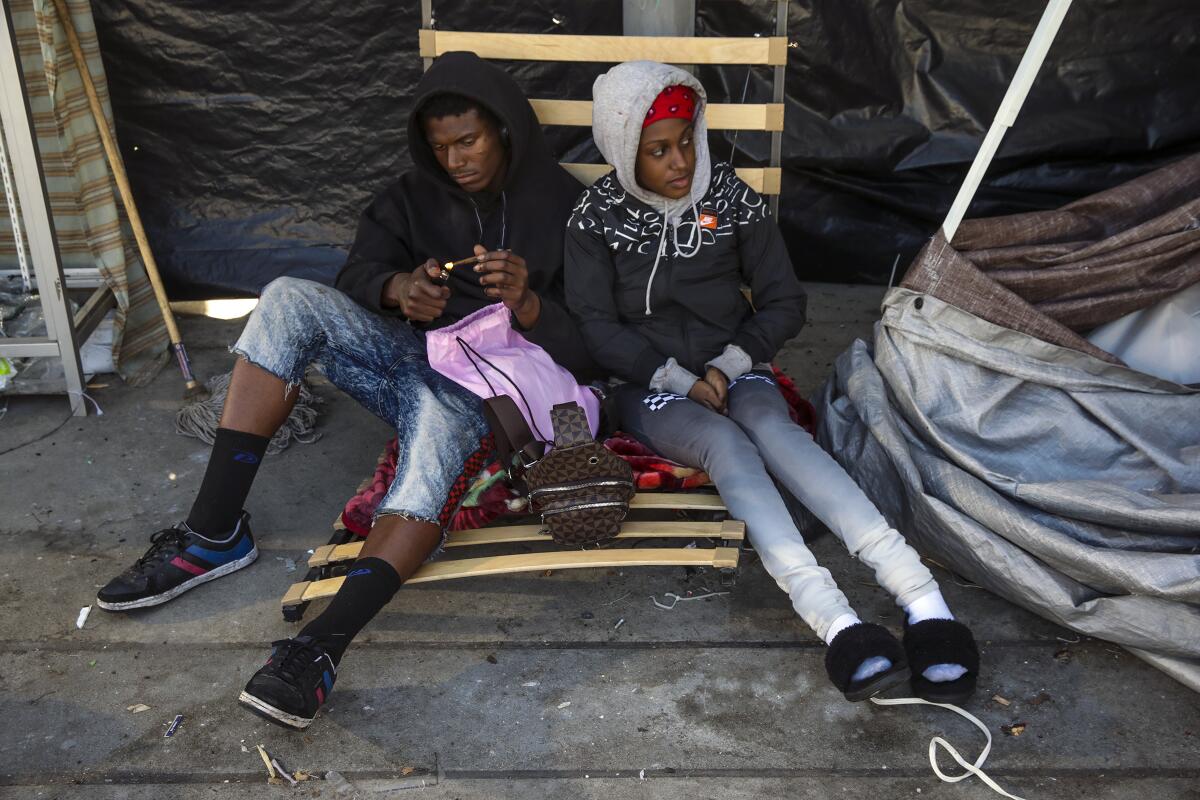
On Wednesday, a Times reporter observed people smoking methamphetamine on two occasions. The plaza, located at First and Judge John Aiso streets, is a little over an acre of public space with a Metro Bike Station. The plaza also sits atop an underground parking lot that is used for visitors when shopping in Little Tokyo and the downtown area.
Across the encampment, in Fugetsu-Do Sweet Shop with traditional Japanese confections, Brian Kito tended to workers.
The family confection shop has been around since 1903, he said, and it has weathered struggles including forced relocations during World War II, the 1992 Los Angeles riots and, most recently, the pandemic. Kito said the encampment only brought more difficulties for him and other local businesses.
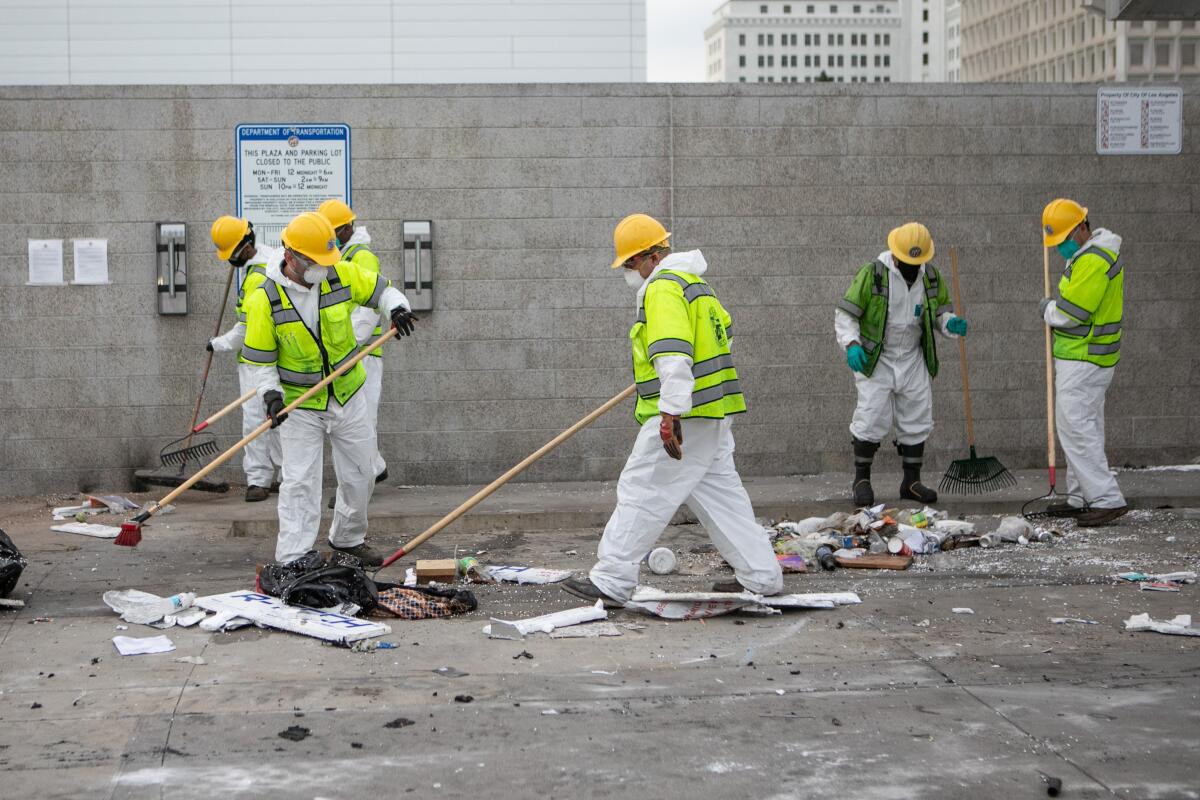
Kito, who is also the president of the Little Tokyo Public Safety Assn., said business owners began seeing homeless people move into the plaza at the start of the pandemic two years ago.
“Then it started growing and growing,” he said. “Then we started seeing the fallout from this thing.”
He said people from the encampment had broken several windows of businesses.
“There were a number of overdoses at the plaza,” he said. “The fire department was responding pretty regularly.
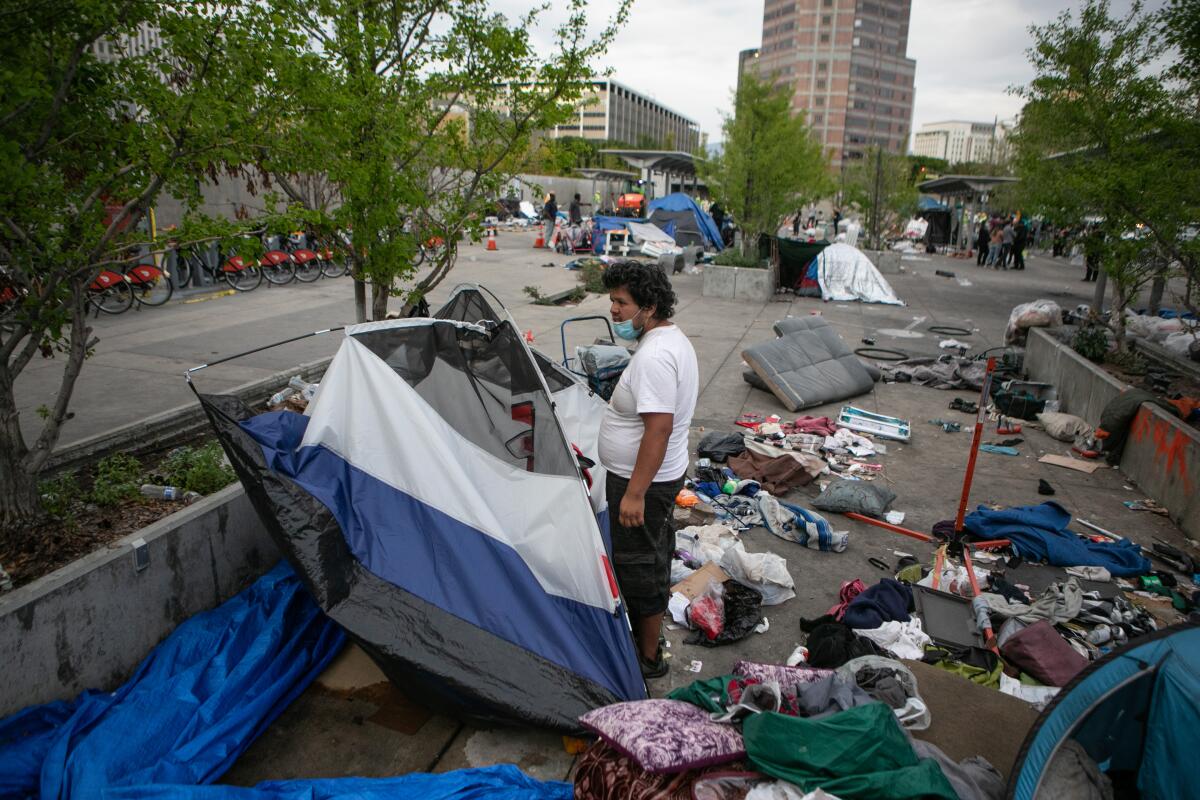
“Within the last three months, tensions were high because it was overly crowded. We’d see people fighting,” he said.
Rumi Fujimoto, who owns the building across the encampment and a nearby video store, said she witnessed “fights and fires.”
She said she empathized with the people at the encampment, especially women, but is happy that the city was moving to clear it out and provide housing for the residents.
At 10 a.m. Thursday, activists got into a heated discussion with Brown, of De León’s office. Throughout the day, they had been cursing at him and interrupting interviews. They also targeted a Times photographer, alleging he was working for law enforcement. Nearby, some of the J-Action Town and Solidarity activists were focused on helping some people take down tents.
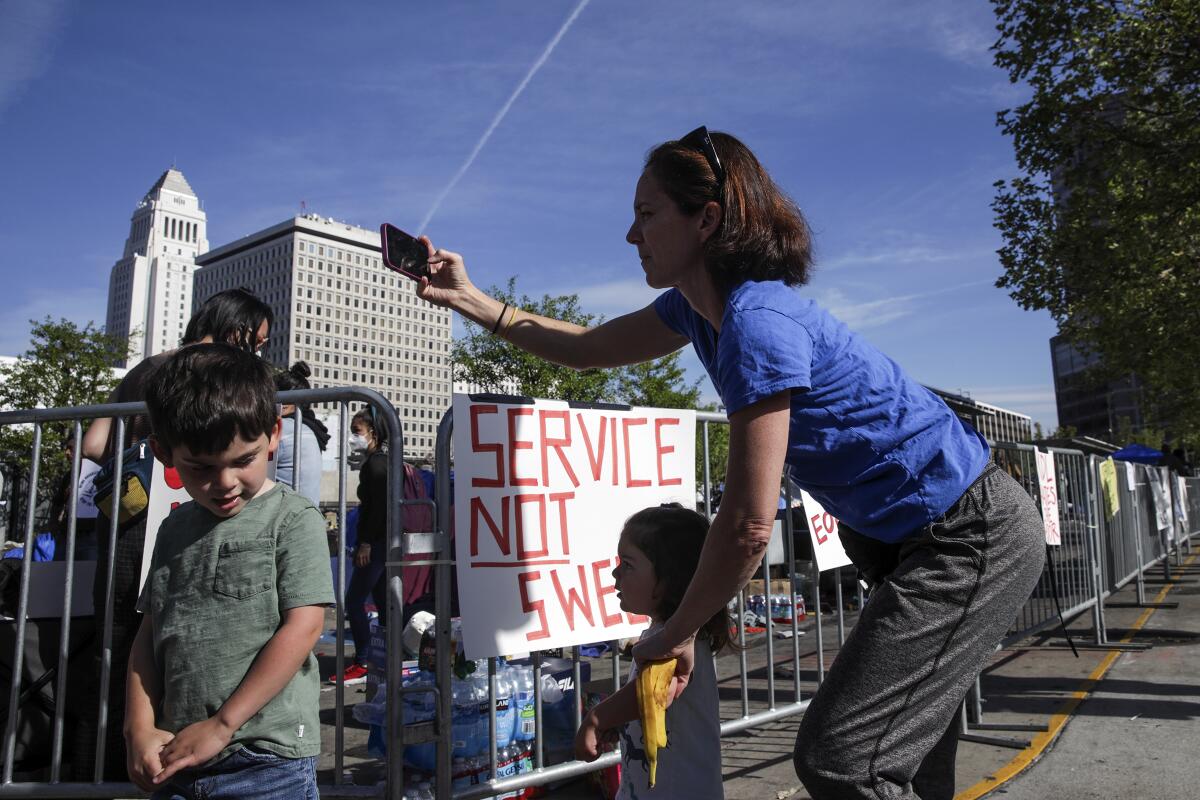
They gave out large traveling bags. They collected items of those who received housing and began transferring them to storage for safe keeping. Volunteers said the maximum amount of time they could hold the items was three months.
Bicycle parts lay in a pile in the center of the encampment. There were charred sections of the wall where fires had been lit. A few tents covered in blue tarps remained standing.
Lying next to each other against a bench, Angelae Cockrell and JT Jackson, both 20, were waiting to talk to an outreach worker from Los Angeles Homeless Services Authority so that the couple could get housing. She was happy that the activists spoke up for their concerns.
“That was the best part of all this,” she said, smiling. “They did all the talking for us.”
By evening, they were gone. Only seven people remained in the plaza.
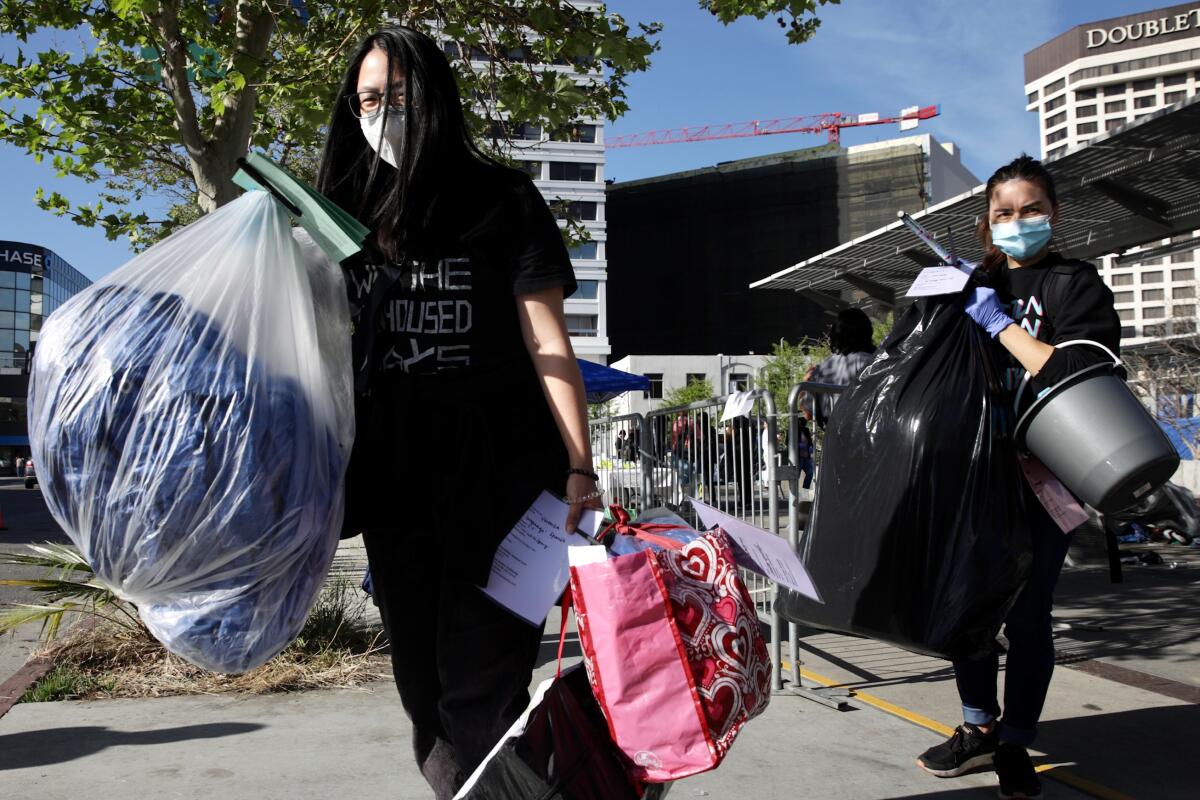
More to Read
Sign up for Essential California
The most important California stories and recommendations in your inbox every morning.
You may occasionally receive promotional content from the Los Angeles Times.











